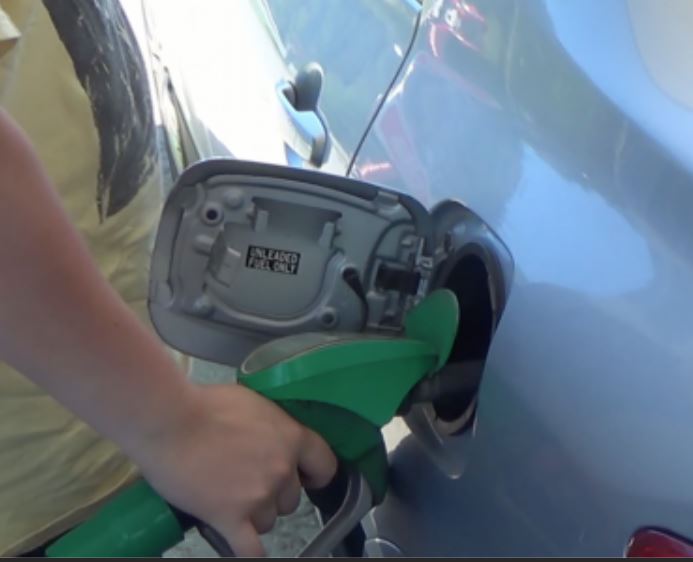
Did you know that last year Virginia’s tax on gasoline increased 5 cents per gallon, on July 1, 2020, from 24.4 cents to 29.4 cents?
Did you know that this year Virginia’s tax on gasoline is increasing again, by another 5 cents per gallon on July 1, 2021, to 34.4 cents? That is a 40% increase in one year.
Also, starting next year the Virginia gasoline tax will automatically increase with inflation every July 1st.
Did you know that in addition to the Virginia gasoline tax, there is a federal gasoline tax of 18.4 cents?
Therefore, the total gasoline tax at Virginia pumps will have increased from 42.8 cents in 2019 to 52.8 cents this year.
You won’t find these numbers in press reports because the Virginia government obfuscates gasoline taxes.
For example, a March 8, 2020, Washington Post article, “Virginia General Assembly approves higher gas tax …” quoted Virginia officials as saying that the gas tax before last year’s increase was 16.2 cents. It wasn’t; it was 24.4 cents. The 16.2 cents is what the retailer pays the state. In addition, the wholesaler pays another 7.6 cents per gallon to the state. On top of that there is a 0.6 cent tax per gallon for tank storage.
The Department of Motor Vehicles (DMV) collects gasoline taxes and is responsible for reporting them. A June 5, 2020, DMV press release, “New Law Reduces Vehicle Registration Fees for Virginians …” does mention “increasing the statewide gas tax by five cents this year and next.”
The press release however emphasizes a $10 reduction in vehicle registration fees, while admitting to a new “highway use fee” of $19 for fuel-efficient cars.
Elsewhere the DMV website does mention the 2019 retailer 16.2 cent gas tax, that it increased to 21.2 cents last year, and that it increases to 26.2 this year, but try to find it. The 0.6 cent storage tank fee is also shown, but with a typo: It’s shown as “0.006 cents.” It should be 0.6 cents or $0.006.
The wholesaler’s 7.6 cent per gallon tax is on a separate DMV page. Nowhere does the DMV state that the total Virginia gasoline tax was increasing from 24.4 cents to 34.4 cents.
Nowhere does the DMV website mention that with the federal gas tax, the total gasoline tax at Virginia pumps will be 52.8 cents.
The gasoline tax hikes along with increases in hotel taxes and real estate transfer taxes plus the new “highway use fee” were enacted by House Bill 1414 (HB1414), passed in the 2020 General Assembly.
Patrons of HB1414 include Fairfax County Delegates Eileen Filler-Corn, “Rip” Sullivan, Jr., Vivian Watts, and Kathleen Murphy.
Patrons of the identical senate version, Senate Bill 890, include Fairfax County Senators Richard Saslaw, Jennifer Boysko, and Barbara Favola.
In the Washington Post article, a Northam spokeswoman said that HB 1414 is a “once-in-a-generation” package. Not so. In 2019, HB2718 imposed the 7.6 cent wholesale gas tax on the I-81 corridor. Add to that the new tolls on I-66. In 2013, HB 2313, another transportation bill, raised the Fairfax County sales tax from 5 to 6 cents, a 20% increase, and increased the auto sales tax from 3% to 4.15%.
In 2007, House Bill 3202, a transportation bill, resulted in a 12.5 cent increase in the Fairfax County real estate tax for businesses.
Perhaps Virginia’s fastest growing revenue is “General Fund” revenue, which is primarily income taxes and the portion of state sales taxes not earmarked for transportation. Earmarked taxes go into a “Non-General Fund.”
Since 1961, General Fund revenues, which are mainly spent on education and welfare and are off-limits to transportation, have grown seven times faster than Virginia population and inflation.
If transportation had been allowed to compete against bloated education and welfare budgets for soaring General Fund revenues, the repeated transportation tax hikes would not have been necessary.
This column is republished with permission from the Fairfax County Taxpayers Alliance “The Bulletin” newsletter.

Leave a Reply
You must be logged in to post a comment.